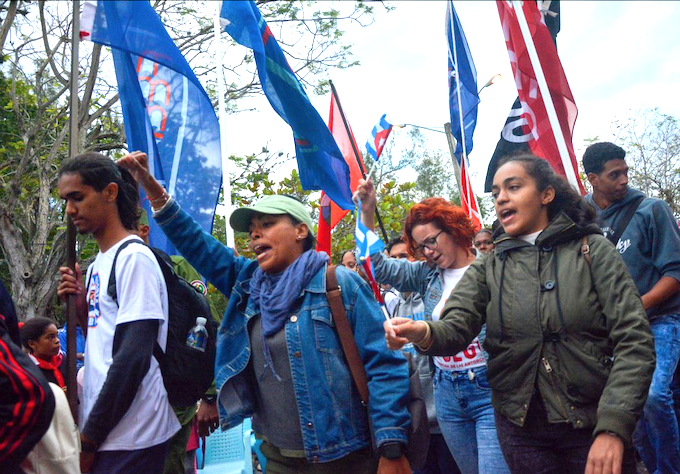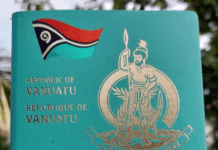
COMMENTARY: By Maire Leadbeater
Aotearoa New Zealand’s coalition government has introduced a bill to criminalise “improper conduct for or on behalf of a foreign power” or foreign interference that echoes earlier Cold War times, and could capture critics of New Zealand’s foreign and defence policy, especially if they liaise with a “foreign country”.
It is a threat to our democracy and here is why.
Two new offences are:
Offence 78AAA — a person thus charged must include all three of the following key elements — they:
- know, or ought to know, they are acting for a foreign state, and
- act in a covert, deceptive, coercive, or corruptive manner, and
- intend to, or are aware that they are likely to, harm New Zealand interests specified in the offence through their actions OR are reckless as to whether their conduct harms New Zealand’s interests.
Offence 78AAB – a person thus charged must commit:
- any imprisonable offence intending to OR being reckless as to whether doing so is likely to provide a relevant benefit to a foreign power.
New Zealand’s “interests” include its democratic processes, its economy, rights provisions, as well as its defence and security. A “Foreign Power” ranges from a foreign government to an association supporting a political party; “relevant benefit to a foreign power” includes advancing “the coercive influence of a foreign power over persons in or outside New Zealand”.
- READ MORE: An indictment of NZ’s settler colonial and ‘Five Eyes’ spy paranoia over political critics
- Behind settler colonial NZ’s paranoia about dissident ‘persons of interest’
New Zealand’s “interests” include its democratic processes, its economy, rights provisions, as well as its defence and security. A “Foreign Power” ranges from a foreign government to an association supporting a political party; “relevant benefit to a foreign power” includes advancing “the coercive influence of a foreign power over persons in or outside New Zealand”.
The bill also extends laws on publication of classified information, changes “official” information to “relevant” information, increases powers of unwarranted searches by authorities, and allows charging of people outside of New Zealand who “owe allegiance to the Sovereign in right of New Zealand” and aid and abet a non-New Zealander to carry out a “relevant act” of espionage, treason and inciting to mutiny even if the act is not in fact carried out.
Why this legislation is dangerous
1. Much of the language is vague and the terms subjective. How should we establish what an individual ‘ought to have known’ or whether he or she is being “reckless”? It is entirely possible to be a loyal New Zealand and hold a different view to that of the government of the day about “New Zealand’s interests” and “security”.
- This proposed legislation is potentially highly undemocratic and a threat to free speech and freedom of association. Ironically the legislation is a close copy of similar legislation passed in Australia in 2018 and it reflects the messaging about “foreign interference” promoted by our Five Eyes partners.
How should we distinguish “foreign interference” from the multitude of ways in which other states seek to influence our trade, aid, foreign affairs and defence policies? It is not plausible that the motivation behind this legislation is to limit Western pressure on New Zealand to water down its nuclear free policy.
Or to ensure that its defence forces are interoperable with those of its allies and to be part of military exercises in the South China Sea. Or to host spyware tools on behalf of the United States. Or to sign trade agreements that favour US based corporates.
The government openly supports these activities, so it seems that the legislation is aimed at foreign interference from current geostrategic “enemies”. Which ones? China, Russia, Iran?
The introduction of a bill to criminalise foreign interference has echoes of earlier Cold War times as it has the potential to criminalise members of friendship organisations that seek to improve understanding and cooperation with people in countries such as China, Russia or North Korea.
It is entirely possible that their efforts could be seen as engaging in conduct “for or on behalf of” a foreign power.
There is also real concern is that this legislation could capture critics of New Zealand’s foreign and defence policy, especially if they liaise with a “foreign country”. There is a global movement of resistance to economic sanctions on Cuba and other countries including Venezuela, and North Korea.
Supporters are likely to liaise with representatives of those countries, and perhaps circulate their material. Could that be considered harming New Zealand’s interests? The inclusion of such vague wording (Clause 78AAB) as “enhancing the influence” of a foreign power is chilling in its potential to silence open debate, and especially dissent or protest.
The legislation is unnecessary
Existing law already criminalises espionage which intentionally prejudices the security or defence of New Zealand. There are also laws to cover pressurising others by blackmail, corruption, and threats of violence or threats of harm to people and property.
It is true that diaspora critics of authoritarian regimes come under pressure from their home governments. Such governments seek to silence their critics who are outside their jurisdiction by threatening harm to their families still living in the home country.
But it is not clear how New Zealand law could prevent this as it cannot protect people who are not within its jurisdiction. This is something which diaspora citizens and overseas students studying here must be acutely conscious of. This issue is one for diplomacy and negotiation rather than law.
A threat to democracy
The terms sedition and subversion have gone into disuse and are no longer part of our law.
They were used in the past to criminalise some and ensure that others were subject to intrusive surveillance.
In essence both terms justified State actions against dissidents or those who held an alternative vision of how society should be ordered. In Cold War times the State was particularly exercised with those who championed communist ideas, took an interest in the Soviet Union or China or associated with Communists.
Those who associated with Soviet diplomats or attended functions at the Soviet Embassy would often be subject to SIS surveillance.
Maire Leadbeater is a leading activist and author of the recently published book The Enemy Within: The Human Cost of State Surveillance in Aotearoa/New Zealand. This article is based on a submission against the bill and was first published in The Daily Blog.











































